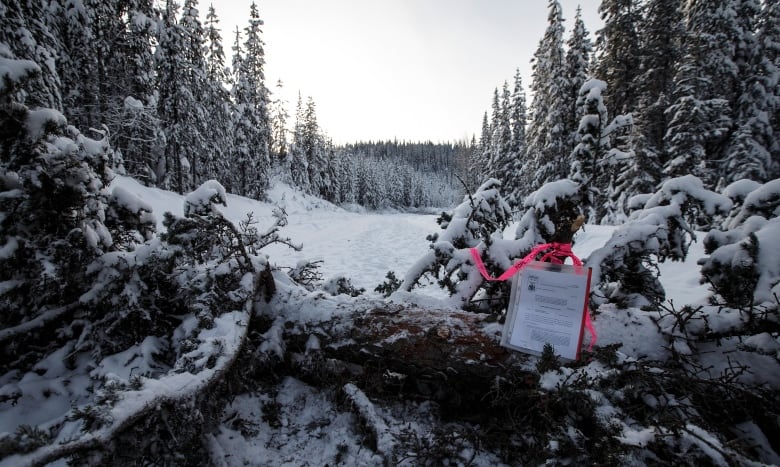Former treaty negotiator accuses B.C. government of 'picking their Indians' in Wet'suwet'en conflict

A former B.C. treaty negotiator is calling out the provincial government for its role in the Wet’suwet’en conflict over the Coastal GasLink pipeline, saying the provincial and federal governments acknowledged long ago that the hereditary chiefs are the appropriate people to negotiate with on matters of rights and title.
Brian Domney penned an open letter to B.C. Premier John Horgan last week and shared it with CBC News, writing that the conflict today is largely rooted in government “shopping around the First Nations world” to find the individuals or groups that will support its agenda.
Domney, who is now retired, worked for the B.C. Ministry of Education in Indigenous education and spent the last seven years of his career with the B.C. Treaty Negotiation Office as the lead negotiator for British Columbia at the Wet’suwet’en treaty table.
He said the current outrage coming from Indigenous Peoples who support the hereditary chiefs is justified.
“I spent seven years negotiating Wet’suwe’ten rights and title on behalf of the provincial Crown and both the provincial and federal governments had agreed the Office of the Wet’suwet’en — that group representing the hereditary chiefs — had the authority to negotiate the rights and title of the Wet’suwet’en people at the treaty table,” he said in an interview with CBC News.
The Wet’suwet’en hereditary chiefs have long maintained they do not consent to the Coastal Gaslink pipeline being built through their traditional territory and engaged in the permitting process, urging the Environmental Assessment Office to not approve the project.
But the project — a 670-kilometre natural gas pipeline that would run from northeastern B.C. to the coast in Kitimat as part of an estimated $40 billion liquefied natural gas project — received approval to go ahead.
While the hereditary chiefs have continued to assert their opposition and laws on the territory, a B.C. Supreme Court decision in December ruled in favour of Coastal GasLink and ordered people to stop blocking the company and its contractors from using a forest service road needed for construction work.
The ruling highlighted disagreement among the Wet’suwet’en people on whether the pipeline should go ahead, and acknowledged that Coastal GasLink signed benefit agreements with 20 First Nations along the pipeline route.
Five of the six Wet’suwet’en bands were among those who signed.
Conflicts of this kind ‘inevitable’
Domney has heard these agreements represent evidence of consent or support for the project. But he echoes what the hereditary chiefs have said — that the band councils’ authority and jurisdiction is limited to the reserves.
Domney said the current situation has largely unfolded because government has “picked their Indians” to move the project ahead (it’s a phrase he credits to the late Nuu-chah-nulth leader George Watts).
“Now, because the chiefs with the sacred responsibility to steward their house territories for their people are not prepared to permit infringement of those rights and title, the corporation and government found their Indians in the elected band system.”
That being said, Domney said he’s not surprised that band governments would go ahead and sign agreements.
“When you are a First Nation politician responsible for taking care of your people, trapped on a reserve in abject poverty under the Indian Act after generations of oppression, and underfunded for statutory obligations by the federal government, when a corporation waves money under your nose, it’s a big temptation,” he wrote in his open letter.
Domney said the way the situation has unfolded doesn’t come as a surprise.
“It is inevitable in Canada that these kinds of issues and conflicts are going to come up as we move ahead in trying to reconcile the relationship between First Nations people and the colonial system.”
In his view, in order for things to calm down, the provincial and federal governments need to step up and show the hereditary chiefs respect and to give the nation some space to resolve who speaks for them.
CBC News sent a request for response to the premier’s office on Tuesday and has yet to receive a response.





